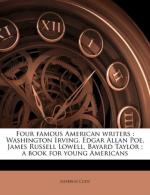|
This section contains 2,551 words (approx. 9 pages at 300 words per page) |

|
SOURCE: “Henpecked to Heroism: Placing Rip Van Winkle and Francis Macomber in the American Renegade Tradition,” Hemingway Review, Vol. 17, No. 2, Spring, 1998, pp. 111-17.
In the following essay, Catalano compares “Rip Van Winkle” to Hemingway's “The Short Happy Life of Francis Macomber,” arguing that both protagonists share a transformation against the powers of female authority.
As American citizens, both Washington Irving and Ernest Hemingway were aware of the “renegade spirit” distinguishing American culture from its confining European influences. As American artists, both authors were no less benefactors of this unique tradition than shapers of its modern form. Hemingway is especially known for extending the American renegade spirit beyond our borders to include safari hunters, matadors, and soldiers, yet undeniably “[Hemingway] is at home, too, with the Rip Van Winkle archetype, with … traditional evasions of domesticity and civil life” (Fiedler 305). Because “traditional” also constitutes “conventional,” these “traditional evasions” may help...
|
This section contains 2,551 words (approx. 9 pages at 300 words per page) |

|


